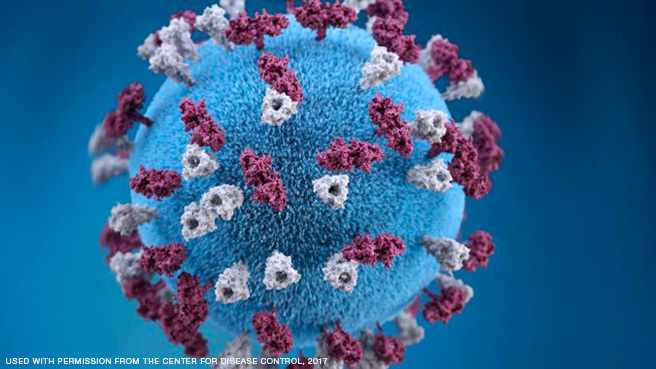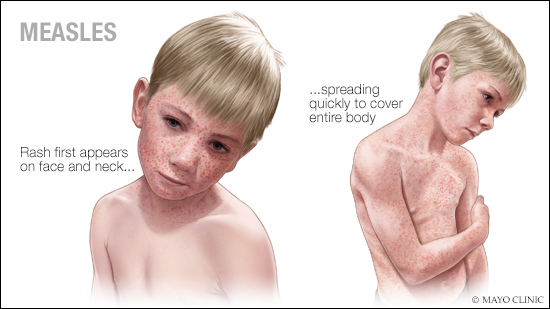-
Featured News
Infectious Diseases A-Z: Measles outbreaks continue in the US
 Ten states have reported pockets of measles outbreaks since January. The infectious and deadly disease was eradicated in the U.S. in 2000. However, it continues to be common in many parts of the world. The Centers for Disease Control and Prevention (CDC) says unvaccinated international travelers continue to bring the virus to the U.S., where it is further spread in communities of unvaccinated people.
Ten states have reported pockets of measles outbreaks since January. The infectious and deadly disease was eradicated in the U.S. in 2000. However, it continues to be common in many parts of the world. The Centers for Disease Control and Prevention (CDC) says unvaccinated international travelers continue to bring the virus to the U.S., where it is further spread in communities of unvaccinated people.
"Measles is a vaccine-preventable disease that is highly contagious," says Dr. Pritish Tosh, a Mayo Clinic infectious diseases specialist. "Once it gets introduced into a susceptible — usually unvaccinated —population, most people will get infected quite quickly."
Watch: Dr. Pritish Tosh discusses measles
Journalists: Broadcast-quality sound bites with Dr. Pritish Tosh are in the downloads at the end of the post. Please 'Courtesy: Mayo Clinic News Network.'
The measles, mumps and rubella (MMR) vaccine is an effective and safe way to prevent the spread of the childhood illness. Dr. Tosh says vaccines have been a victim of their own success. "When they rolled out, especially for measles in the '60s, at that time hundreds of thousands of kids were dying every year in the world. As we've been able to increase the amount of vaccination in developing countries, that number is down to about 150,000 a year — still an unfathomable number."
Symptoms
It may take up to two weeks after exposure to the virus to develop symptoms. Those symptoms frequently include:
- Fever
- Dry cough
- Runny nose
- Sore throat
- Inflamed eyes (conjunctivitis)
- Tiny white spots with bluish-white centers on a red background found inside the mouth on the inner lining of the cheek
- A skin rash
 Along with symptoms, Dr. Tosh says the virus can cause more severe complications, including pneumonia and encephalitis. About 1 in 4 people in the U.S. who get measles will be hospitalized. And for every 1,000 children who get measles, one or two will die from it, according to the CDC.
Along with symptoms, Dr. Tosh says the virus can cause more severe complications, including pneumonia and encephalitis. About 1 in 4 people in the U.S. who get measles will be hospitalized. And for every 1,000 children who get measles, one or two will die from it, according to the CDC.
While there is an effective vaccine to prevent the virus, there's no anti-viral treatment for it. "It's just supportive care," says Dr. Tosh. "And the best way to prevent these complications is not to get it at all. Thankfully, there's a very safe and very effective vaccine that’s been available for decades. We just have to use it."
The CDC recommends all children get two doses of MMR vaccine, starting with the first dose at 12 to 15 months of age and the second dose at ages 4 to 6. Adults may need a third booster vaccine in settings where outbreaks are occurring, such as college campuses and military settings.
Related posts:
- More about measles
- Infectious Diseases A–Z: Importance of childhood vaccines
- Infectious Diseases A–Z: Measles in North America







